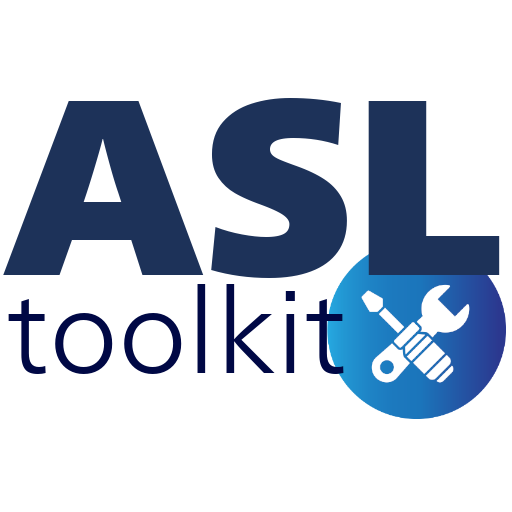Difference between revisions of "Documentation/Nightly/Extensions/Slicer ASLtoolkit"
Acsenrafilho (talk | contribs) m |
Acsenrafilho (talk | contribs) m Tag: 2017 source edit |
||
| Line 26: | Line 26: | ||
[[Image:ASLtoolkit-logo.png|left]] | [[Image:ASLtoolkit-logo.png|left]] | ||
| − | ASL toolkit is ... | + | ASL toolkit is a library that was designed to assist users to process Arterial Spin Labeling (ASL) MRI images, since basic imaging protocols until the state-of-art models provided in the scientific literature. |
| + | |||
| + | The major objective of this project is to give an open-source alternative to researchers in the MRI field. However, a profound knowledge of computing and data modeling is not a prior demand. It is expected that a simple set of python commands can be helpful to fast prototyping an ASL experiment or even collect simple quantitative ASL-based information. | ||
| + | |||
| + | This module was created in 3D Slicer to be another alternative to use the asltk framework, using a simple and quick-to-use graphical interface. The general usage here is basically the same pattern as using the python tool provided at `asltk` library. Further details can be found at the asltk official documentation. | ||
<!-- ---------------------------- --> | <!-- ---------------------------- --> | ||
{{documentation/{{documentation/version}}/extension-section|Modules}} | {{documentation/{{documentation/version}}/extension-section|Modules}} | ||
| − | * ''' | + | * '''CBF ATT Mapping''': [[Documentation/{{documentation/version}}/Modules/CBFATTMapping|CBF ATT Mapping]] |
| − | * ''' | + | * '''MultiTE ASL Mapping''': [[Documentation/{{documentation/version}}/Modules/MultiTEASLMapping|MultiTE ASL Mapping]] |
| − | |||
| − | |||
<!-- ---------------------------- --> | <!-- ---------------------------- --> | ||
| Line 40: | Line 42: | ||
Most frequently used for these scenarios: | Most frequently used for these scenarios: | ||
* Use Case 1: | * Use Case 1: | ||
| − | ** | + | ** Create the basic CBF and ATT maps using the pCASL ASL MRI imaging protocol |
| + | * Use Case 2: | ||
| + | ** Create the T1 relaxation time exchange between blood and csf, as presented at Leonie Petitclerc, et al. (2021). | ||
<gallery widths="400px" heights="400px" perrow="3"> | <gallery widths="400px" heights="400px" perrow="3"> | ||
| − | Image: | + | Image:CBFMap.png|CBF map |
| − | Image: | + | Image:ATTMap.png|ATT map |
| + | Image:T1BlGM-multiTE.png|MultiTE-ASL T1 blood-GM map | ||
</gallery> | </gallery> | ||
| − | |||
| − | |||
| − | |||
| − | |||
<!-- ---------------------------- --> | <!-- ---------------------------- --> | ||
{{documentation/{{documentation/version}}/extension-section|References}} | {{documentation/{{documentation/version}}/extension-section|References}} | ||
| − | * | + | * Leonie Petitclerc, et al. "Ultra-long-TE arterial spin labeling reveals rapid and brain-wide blood-to-CSF water transport in humans", Neuroimage (2021). DOI: 10.1016/j.neuroimage.2021.118755 |
| Line 62: | Line 63: | ||
Repositories: | Repositories: | ||
| − | *Source code: [https://github.com/ | + | *Source code: [https://github.com/LOAMRI/Slicer-ASLtoolkit GitHub repository] |
| − | *Issue tracker: [https://github.com/ | + | *Issue tracker: [https://github.com/LOAMRI/Slicer-ASLtoolkit/issues open issues and enhancement requests] |
<!-- ---------------------------- --> | <!-- ---------------------------- --> | ||
Revision as of 15:00, 4 October 2024
Home < Documentation < Nightly < Extensions < Slicer ASLtoolkit
|
For the latest Slicer documentation, visit the read-the-docs. |
Introduction and Acknowledgements
|
This work was funded by State University of Campinas, Sao Paulo, Brazil. | |||||
|
Extension Description
ASL toolkit is a library that was designed to assist users to process Arterial Spin Labeling (ASL) MRI images, since basic imaging protocols until the state-of-art models provided in the scientific literature.
The major objective of this project is to give an open-source alternative to researchers in the MRI field. However, a profound knowledge of computing and data modeling is not a prior demand. It is expected that a simple set of python commands can be helpful to fast prototyping an ASL experiment or even collect simple quantitative ASL-based information.
This module was created in 3D Slicer to be another alternative to use the asltk framework, using a simple and quick-to-use graphical interface. The general usage here is basically the same pattern as using the python tool provided at `asltk` library. Further details can be found at the asltk official documentation.
Modules
- CBF ATT Mapping: CBF ATT Mapping
- MultiTE ASL Mapping: MultiTE ASL Mapping
Use Cases
Most frequently used for these scenarios:
- Use Case 1:
- Create the basic CBF and ATT maps using the pCASL ASL MRI imaging protocol
- Use Case 2:
- Create the T1 relaxation time exchange between blood and csf, as presented at Leonie Petitclerc, et al. (2021).
- CBFMap.png
CBF map
- ATTMap.png
ATT map
- T1BlGM-multiTE.png
MultiTE-ASL T1 blood-GM map
References
- Leonie Petitclerc, et al. "Ultra-long-TE arterial spin labeling reveals rapid and brain-wide blood-to-CSF water transport in humans", Neuroimage (2021). DOI: 10.1016/j.neuroimage.2021.118755
Information for Developers
| Section under construction. |
Repositories:
- Source code: GitHub repository
- Issue tracker: open issues and enhancement requests


